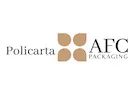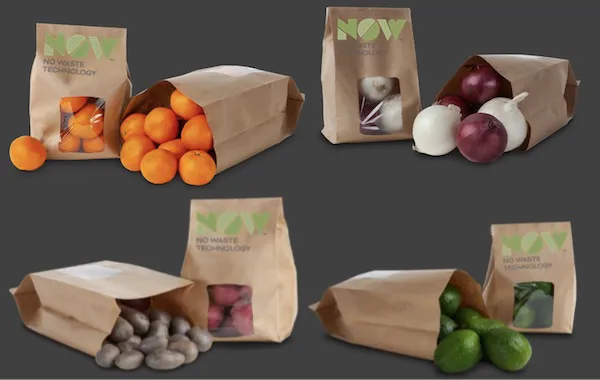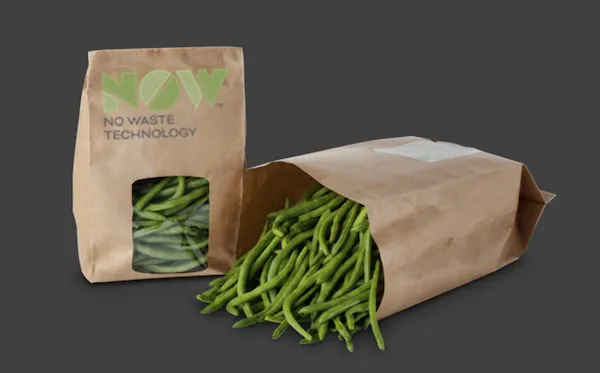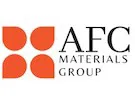Demand for sustainability in packaging has been rising both among the consumer as well as throughout the produce industry. Among the various materials that can be used in sustainable packaging, paper is the most efficient in terms of recyclability, according to Stefano Giusti, GM of Policarta and the VP of Global Packaging for AFC Packaging. “From a sustainability perspective, paper is fantastic. It can be recycled and reused up to seven times, and the infrastructures in place for recycling paper are very organized and efficient. Approximately 80% of all paper products are recovered and of that amount, 100% is recycled.”
 So, from a sustainability perspective paper would be the optimal material for packaging. “Unfortunately, from a functional perspective, paper isn’t a very good option. So, what often happens is that companies will use paper but then bring in additives to increase its functionality, such as coatings, adhesives, or even laminating it with plastic, which then impede the recyclability of the product. That is why AFC Materials set out to create a solution which would allow the packaging to have both functionality and recyclability.”
So, from a sustainability perspective paper would be the optimal material for packaging. “Unfortunately, from a functional perspective, paper isn’t a very good option. So, what often happens is that companies will use paper but then bring in additives to increase its functionality, such as coatings, adhesives, or even laminating it with plastic, which then impede the recyclability of the product. That is why AFC Materials set out to create a solution which would allow the packaging to have both functionality and recyclability.”

No Waste Technology
The solution created by AFC Materials is No Waste Technology (NoW). “No Waste works as a primer to the paper – it is applied to the paper and serves as a barrier to protect the paper from any other coatings, adhesives, inks or anything else you might want to add to it to create the perfect packaging. When the paper enters the recycling stream, NoW separates from the paper in the first step of the process, the pulper process, and leaves all the paper fibers to be recovered without any damage to them, and without creating extra work or steps for the recycler,” Giusti explains.
In addition to its recyclability, paper does also have other benefits in packaging that surpass plastic options. “For some products such as potatoes and carrots, the use of paper extends the product’s shelf-life because it helps to protect the product from exposure to sunlight, which reduces oxidation. For carrots, paper allows the creation of vertical flow wrappers which work well with the shape of the product and boost productivity within the supply chain,” says Giusti.
Strong demand for the technology
AFC Materials has been working with this technology since 2014, but it wasn’t until recent years that the concept really took off. “Back when we started in 2014, we understood that the market was moving more and more toward sustainable solutions and that the overall demand for paper-based packaging would increase. In 2014, the market wasn’t quite ready for it yet but now the technology is really taking off.”
This year, the company is seeing higher demand than ever before. Giusti shares: “Demand has been growing heavily, especially these last few months the demand from the produce sector has been skyrocketing. We believe that this technology is a real breakthrough compared to other current methodologies of packaging produce. NoW technology can be integrated into any packaging process and be used on the same machines that the packaging companies are already using, all the while bringing with it the benefits of being 100% recyclable and natural.”
He continues: “Through the pandemic, we have seen demand for packaging in general increase and paper packaging is actually safer than plastic because the virus can live for much longer on plastic packaging that on paper. Additionally, the request for closed packaging has gone up tremendously. Because we maintain the natural breathability of paper, we can offer fully sealed packaging without micro-perforation with a transparent window made out of compostable hydrated cellulose.”
Putting words into action
The technology has been thoroughly tested by outside parties to ensure its effectiveness and safety. “We don’t want to just make claims about our product without being able to back it up with the necessary certifications. That is why we work closely with the Italian and European Union’s recycling associations as well as with Western Michigan University in the United States – which is one of the most authoritative institutes for paper studies. On each of the certifications that NoW technology has received, we scored at the highest possible level, proving the effectiveness of the technology. We believe that certifications are the key to bringing about a true and effective circular economy – without proving the performances you are claiming, it is even possible that you are further harming the environment,” Giusti explains.
Paul Smith is the Business and Marketing Integrator at AFC Materials, and he shares that while the word ‘sustainability’ is used a lot nowadays, often there isn’t enough follow-through. “Sustainability is a hot topic, and words like recyclable, sustainable and compostable have become part of the conversational vernacular, but it’s important that we don’t just throw around these words without clearly defining their meaning,” says Smith. “It’s vital that companies are willing to have their products be vetted by independent agencies to ensure that they meet all the criteria to be legitimately recyclable because often there are additives in the packaging to help its efficiency and stability, that impede the recycling process. The truth is that there are a lot of grey areas, and it’s a disservice to the consumer if companies aren’t ensuring that they themselves are educated on the meaning of these words and how to best apply them into the value chain,” Smith concludes.

 For more information:
For more information:
Paul Smith
AFC Materials Group
Tel: +1 (847) 841-4037
Email: psmith@afcmaterials.com
www.afcmaterials.com
